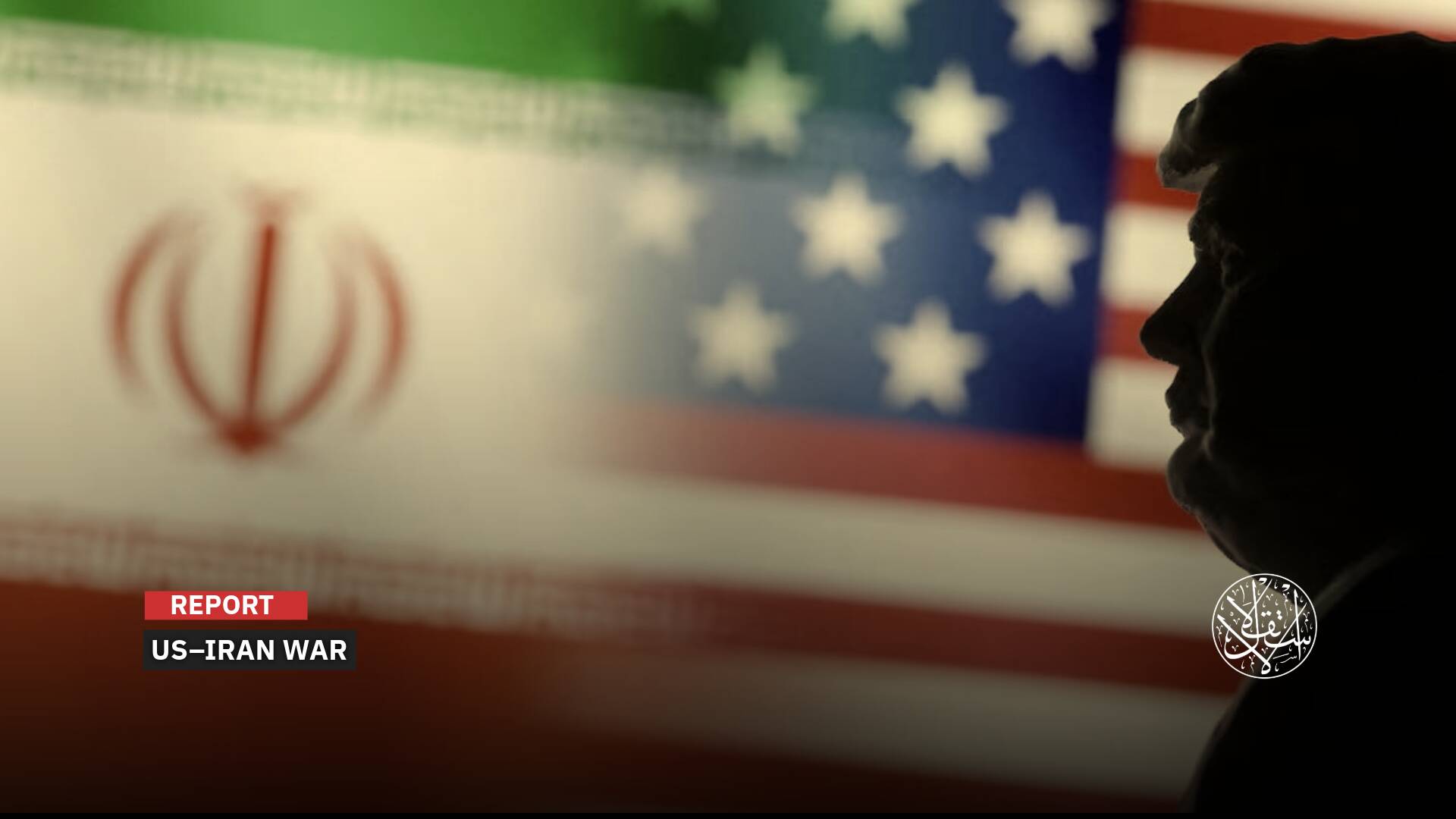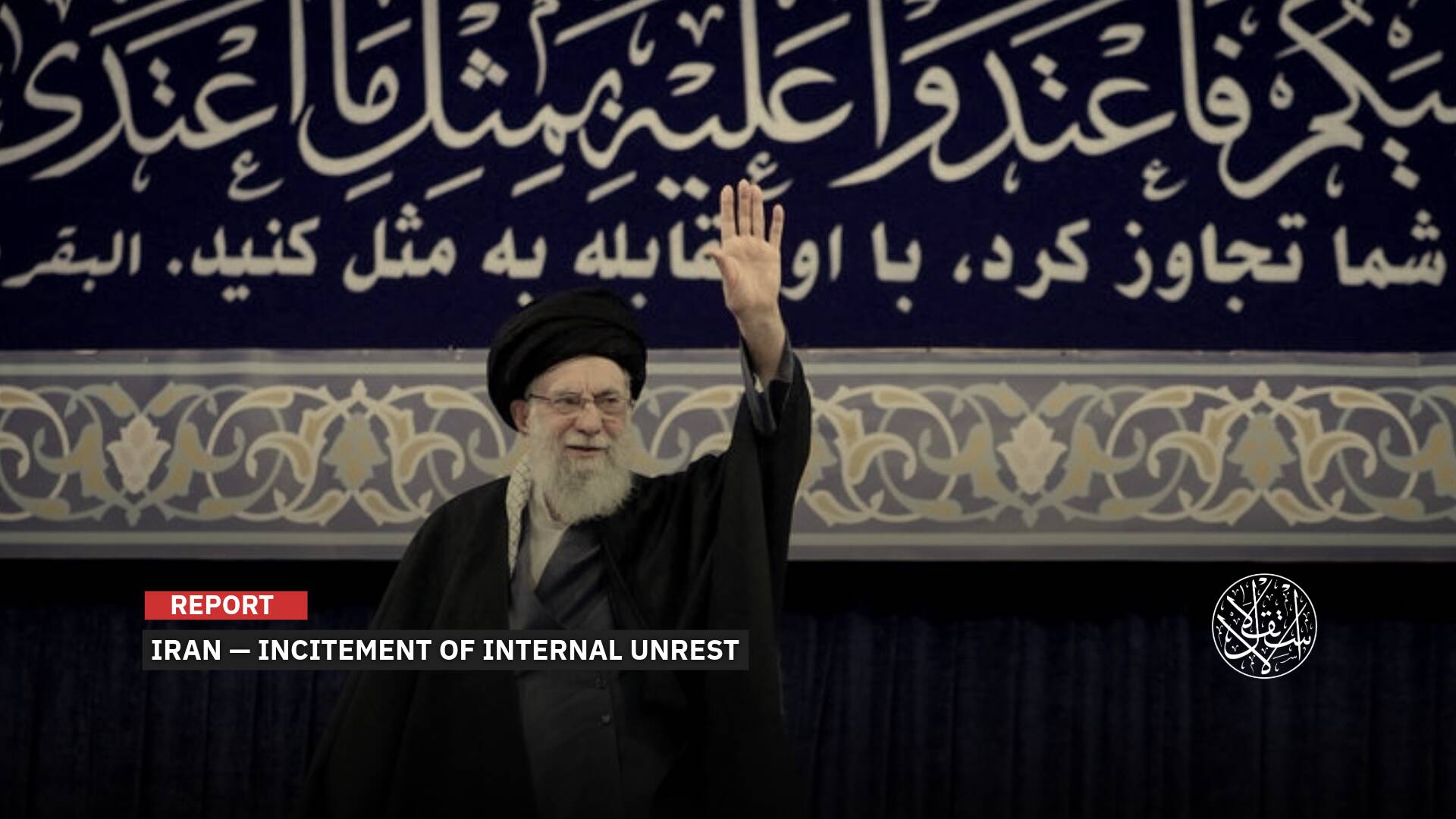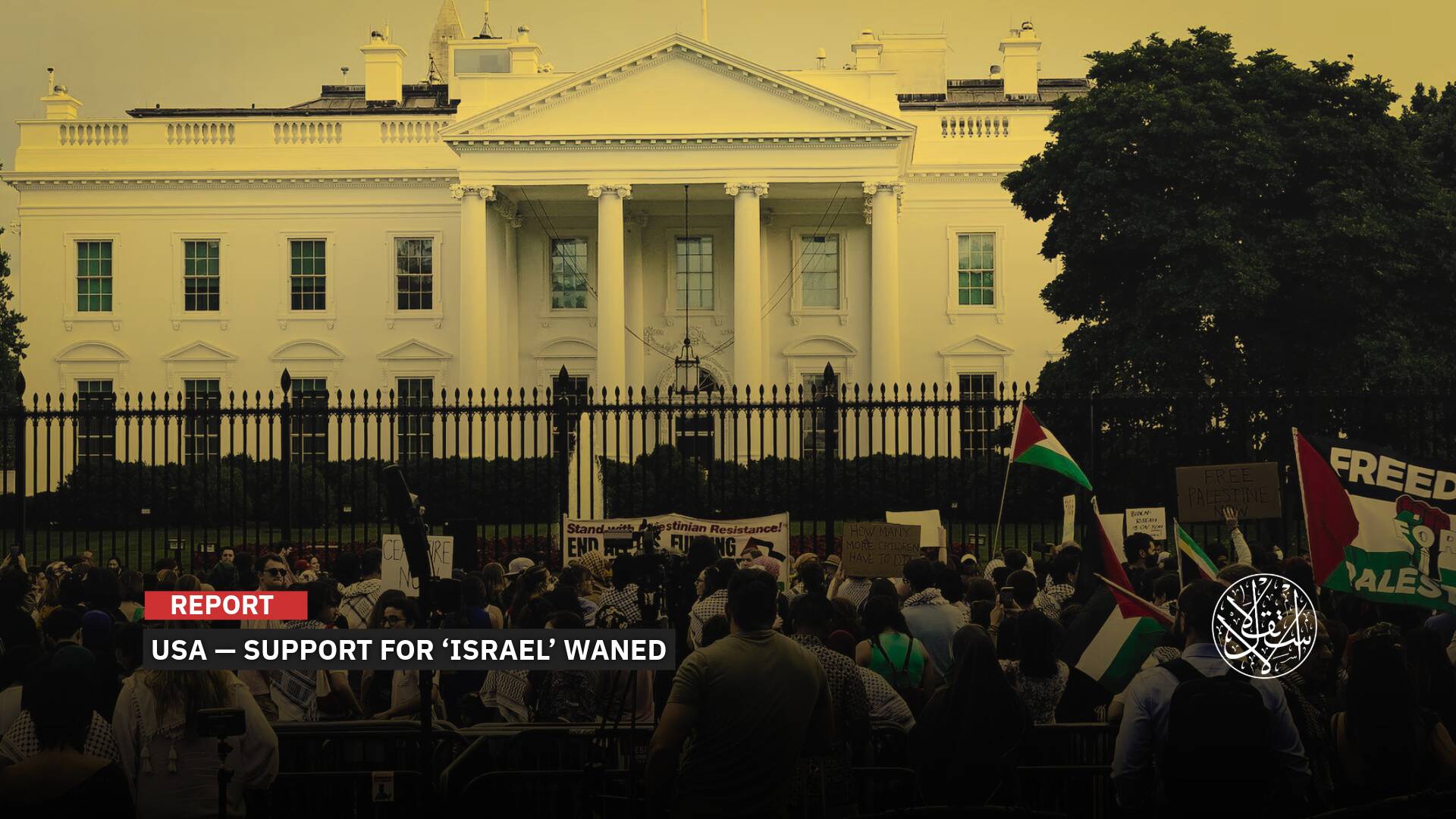‘Israel’ Strikes, Iran Threatens: Will Iraq Be the Next Front?

The United States rejects Israeli strikes in Iraq at this time.
Under the principle of “an eye for an eye”, which has come to define the ongoing conflict between “Israel” and Iran, there is tense anticipation surrounding a potential attack that Tehran has vowed to carry out in retaliation for Israeli airstrikes on Iranian military sites across Iraqi airspace.
On 26 October 2024, the Israeli military announced that it had carried out “precise and targeted strikes” on missile production facilities and other aerial capabilities in Iran, in response to Tehran’s October salvo of nearly 200 rockets launched at “Israel” earlier in the month.

Iraq’s Role in the Conflict
Iran, intent on retaliating against “Israel,” is reportedly considering launching an attack from Iraqi territory, following Israeli use of Iraqi airspace to strike Iranian military sites.
This parallel approach would see Tehran following the same route it accuses “Israel” of taking in response to its own assaults.
Axios cited two Israeli sources (who wished to remain anonymous) as saying that Iran was preparing to launch an attack on “Israel” from Iraq in the coming days.
However, an Israeli official, speaking to the Israeli Broadcasting Corporation, denied there were any signs of such a plan.
The website suggested that the planned attack would likely involve “a large number of drones and ballistic missiles,” launched by Iranian-backed Iraqi militias.
It is speculated that this could be an attempt by Tehran to avoid another Israeli strike on its strategic targets.
In a statement issued on 26 October, Iran's UN mission claimed that "the [Israeli] warplanes attacked several Iranian military and radar sites from Iraqi airspace.”
The next day, Iraqi government spokesman Basim al-Awadi announced that Baghdad had filed an official protest with the UN Secretary-General and the UN Security Council.
The complaint condemned Israeli "flagrant violation" of Iraq’s sovereignty, accusing Israeli aircraft of using Iraqi airspace to launch attacks on Iran on 26 October.
Al-Awadi emphasized that "the Iraqi government reiterates its firm commitment to Iraq’s sovereignty, independence, and territorial integrity," and that the government was taking action on multiple fronts to prevent further violations.
He stressed Iraq’s firm stance against allowing its airspace or territory to be used for attacks on other countries, particularly neighboring states with which it shares mutual respect and interests.
The statement further clarified that Iraq remains dedicated to “maintaining regional stability by preventing its territory from being exploited in regional conflicts and its support for conflict resolution through dialogue and mutual understanding.”

The Meeting of Interests
On the possibility of Iraq becoming a battleground for settling scores between Iran and “Israel,” with the latter targeting Iranian officials and Shiite militia leaders as it does in Syria, Iraqi political analyst Latif al-Mahdawi argued that the United States may not allow Israel to do so, for several reasons.
In an interview with Al-Estiklal, he explained that "both the U.S. and Iran want to keep Iraq out of conflict, as it represents, especially for Tehran, a crucial intersection of interests and a major investment hub. Therefore, destabilizing it security-wise is out of the question."
Al-Mahdawi noted that "Iraq is different for Iran compared to Syria. Losing Iraq would not only cost Iran a strategic neighbor, but it could also open the door for Russia to increase its influence in the region. Similarly, the U.S. might use such a loss as a pretext to reassert greater control over the country."
He further highlighted that "the United States rejects the idea of Israel targeting Iraq at this time. The U.S. wants to keep the country as free as possible from military upheaval, given Iraq’s official stance and despite the influence of Iran-aligned militias and Shiite political factions."
Similarly, Iraqi political writer and analyst Aqeel Abbas stated that "the Iraqi government has managed to curb the militias’ momentum to engage in the war since the eruption of the Operation al-Aqsa Flood, with Iran understanding the sensitivity of the matter. It is well known that Kata’ib Hezbollah [the Hezbollah Brigades] issued a statement halting operations in February 2024, acknowledging the government's concerns."
In a televised interview, Abbas added, "A significant shift seems to have occurred following Israel's recent strike on Iran, which was aimed at provocation. Since the attack on its consulate in Damascus and the killing of several Islamic Revolutionary Guard Corps (IRGC) officers, Israel's goal appears to be drawing Iran into the conflict."
"Before the Israeli bombing of the Iranian consulate in Damascus, Israel had been targeting IRGC members for years, but always on Syrian soil. The consulate strike, however, escalated tensions, as it violated Iranian sovereignty, thus providing Israel with a pretext to retaliate. The U.S. was notably disturbed by this," Abbas noted.
He emphasized, "Israel should not send its aircraft through Iraqi airspace to strike Iran. However, Iran also breached Iraq's sovereignty when it fired hundreds of missiles at Israel for the first time on April 13, 2024, crossing Iraqi airspace."
"Militias are dragging Iraq into a conflict that is not the sovereign decision of the Iraqi government, which should control matters of war and peace. These militias are not elected, and constitutionally they do not have the right to make such decisions. In a country that insists on monopolizing arms in the hands of the state, this is unacceptable," he concluded.
“Israel” has persistently targeted Iranian presence in Syria, as well as directly targeting Iranian officials, such as during the April 1, 2024, attack on the Iranian consulate in Damascus, which resulted in the death of 13 people, including Brigadier General Mohammad Reza Zahedi, a senior commander in the Quds Force.

Harsh Retaliation
In a stark warning, Iran’s Supreme Leader Ayatollah Ali Khamenei vowed to deliver a "crushing response" to both the United States and “Israel” for their actions against Iran and its resistance axis.
Speaking at a commemoration event marking the anniversary of the 1979 U.S. embassy hostage crisis in Tehran, Khamenei said, “We will take all necessary actions – whether military, arms, or political measures – to confront arrogance.”
On the same day, Iranian Revolutionary Guard Corps (IRGC) spokesman Ali Mohammad Naeini declared that Iran would retaliate against the Israeli “new malicious act,” referring to the Israeli air strike against Iran.
“The response to the recent [Israeli] aggression on Iran will be inevitable, decisive, and beyond the enemy’s comprehension,” stated Naeini.
On October 31, Khamenei’s office director, Mohammad Mohammadi Golpayegani, called Israeli’s recent attacks on Iranian territory "a desperate move," promising that the Islamic Republic would retaliate "a harsh and regretful response."
Golpayegani also praised Iran’s air defense forces, which he said had "prevented Zionist fighter jets from entering Iranian airspace," and noted that the damage from the Israeli strikes was "limited."
Commenting on the Iranian threats, political analyst Hossein Royvaran suggested that Tehran viewed the Israeli attack as an act of aggression, citing Israeli earlier assault on the Iranian consulate in Damascus as the starting point for the current series of retaliations.
According to Royvaran, Iran had responded to Israeli strikes, including the assassination of Hamas’s former political bureau chief Ismail Haniyeh, and would continue its retaliation.
"This latest attack is seen as an act of aggression in Tehran, and therefore, a response is required," Royvaran stated.
He also pointed out that Iran could not delegate its response to any regional ally, as the issue was one of sovereignty.
"It is not possible for an Iranian ally, whether in Iraq, Lebanon, or elsewhere, to carry out the retaliation on Iran's behalf," he said.
Royvaran further added that while a ceasefire in Gaza or Lebanon could influence Tehran’s decision, it would not entirely deter Iran from retaliating.
These statements from Iranian officials came shortly after Israeli Prime Minister Benjamin Netanyahu’s statement.
“Israel today has more freedom of action in Iran than ever. We can reach any place in Iran as necessary,” Netanyahu noted “The supreme goal I gave to [Israeli Occupation forces ] and the security branches is to prevent Iran from achieving a nuclear weapon.”
Sources
- Iran preparing major retaliatory strike from Iraq within days, Israeli intel suggests
- Axios: Imminent Iranian Attack on “Israel” from Iraqi Territory [Arabic]
- Iraq Complains to the Security Council About “Israel” for "Violating Its Airspace" During Attack on Iran [Arabic]
- Broadcasting Authority: Iran Plans to Respond to “Israel” from Iraq [Arabic]
- Khamenei Vows to "Respond Harshly" – Will Iran Attack “Israel?” [Arabic]
- Iran Reveals Its Losses in the Consulate Attack in Damascus and Calls for an Urgent Security Council Session [Arabic]
- "A Sovereignty-Free Axis" – How Did Israeli Fighters Reach Iranian Airspace? [Arabic]












